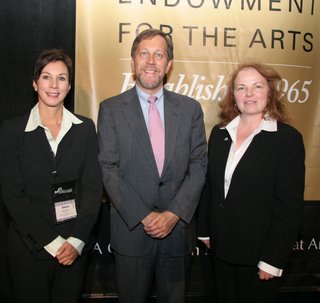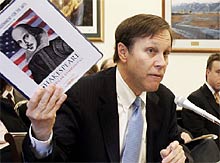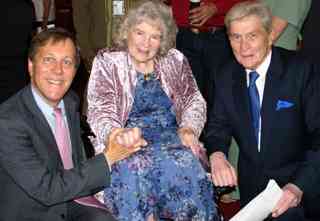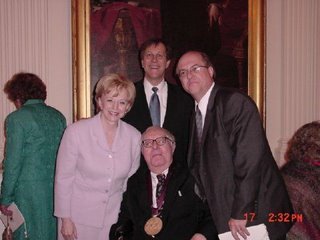Responding to Johannes Göransson
Johannes Göransson -- poet, translator, and co-editor of Action Books -- offered a response to my post on the "New Academicism." I replied. Here's the exchange. If you haven't done so, you should check out the post just below this one before reading further. First Johannes:
"I think you're partially right, but it would help to bring some more specificity to your argument. Otherwise it sounds too much like the reactionary foetry jokers who are opposed to anything other than BishopLowell.
For example, what does it really mean to not get out much? These people travel quite a bit, so I assume something about pristineness, isolation etc. How is this manifested in their poetry? What's wrong with writing about the 14th century? Is it not, the way one writes about the 14 century?
What's the difference between the contemporary love of 'the silence of the white space' and the groundbreaking visual-poetic work of Mallarme and, later Appolinaire (totally different form of experimentation, but also using the visuality of the page)?
Along the same line, what's wrong with their obscurity? What's the purpose of their obscurity?
I don't think Susan Howe belongs in the same crowd as Revell. I don't think Revell is really at all influenced by Stein or Duchamp. He seems to be working on some kind of religious, watered-down objectivism.
My problem with a lot of these folks is that they propose a blatant kind of retro-Keatsian subjectivity and in the process make poetry function in a reactionary way as the keeping of pure language, pure experience (almost always classist, exclusionary, hierarchical) and the way it smothers conflict. This seems to be the core of 'academic' poetry. Whether Revell or the New Critics.
At its core I think avant-garde poetry from the 10s and 20s (Duchamp, Stein, Dada etc) is joyful, populist, anti-hierarchical and (most of all) activating (ie it is poetry that invites the reader to participate in the art, rather than asks the reader to passively admire)."
My reply:
"it sounds too much like the reactionary foetry jokers who are opposed to anything other than BishopLowell."
Is that what they like? I can't help it if we share a certain aversion to some poets. As they say, even a stuck clock is right twice a day. But I doubt the Foetry crowd would praise Duchamp/Stein for instance, so I think you're a little off here.
"For example, what does it really mean to not get out much? These people travel quite a bit, so I assume something about pristineness, isolation, etc. How is this manifested in their poetry?"
One can be pristine and isolated even when on vacation in Paris. My objection is with a lack of engagement with the violence and boredom and kitsch and excrement outside the window. Even though these poets travel during their academic breaks, they never really leave their writing desks. It is manifested in their poetry by meta-musings, navel-gazing, art about art, and art of comfort and privilege.
"What's wrong with writing about the 14th century?"
It's boring. There are more pressing concerns.
"What's the difference between the contemporary love of 'the silence of the white space' and the groundbreaking visual-poetic work of Mallarme and, later Appolinaire (totally different form of experimentation, but also using the visuality of the page)?"
You already know the answer to this question, I'm sure. First of all, it's derivative and hasn't advanced much on the influences you cite. Second, Mallarme was motivated by more than aestheticism: "figuring forth the void," while a lofty goal, is more interesting than spoon-feeding audiences big dollops of faux-reverberant "silence."
"Along the same line, what's wrong with their obscurity? What's the purpose of their obscurity?"
Obscurity is the ugly step-sister of ambiguity. It's purpose is to radiate an inpenetrable sense of the authority. Stein, for example, is never obscure, but she is often ambiguous.
"I don't think Susan Howe belongs in the same crowd as Revell."
Susan Howe is a generous intellect. Her critical writings are far less odious than Revell's. But her own poetry epitomizes what I'm talking about perfectly. She is certainly a part of the new academicism -- she's the darling of the smart establishment. As a person, she's wonderful, but that's not what I'm talking about.
"I don't think Revell is really at all influenced by Stein or Duchamp. He seems to be working on some kind of religious, watered-down objectivism."
Agreed. Though he himself claims to be a big reader of Stein.
"My problem with a lot of these folks is that they propose a blatant kind of retro-Keatsian subjectivity ..."
I think most of these poets would be better off if they were LESS fearful of their own subjectivity and negative capability.
" ... and in the process make poetry function in a reactionary way as the keeping of pure language, pure experience (almost always classist, exclusionary, hierarchical) and the way it smothers conflict."
We agree on the effect but not the cause.
"This seems to be the core of 'academic' poetry. Whether Revell or the New Critics."
Sure, maybe not THE core, but part of the core, yes...
"I think avant-garde poetry from the 10s and 20s (Duchamp, Stein, Dada etc) is joyful, populist, anti-hierarchical and (most of all) activating (ie it is poetry that invites the reader to participate in the art, rather than asks the reader to passively admire)."
I mostly agree, although Stein, for all her dazzling destructions, remained hierarchical in many ways. Of course, the current academic avant-garde often supposes an interactive approach too, but audiences must be charmed before they're going to want to dance.
---
Your thoughts, oh gentle readers of Poetry Snark?










